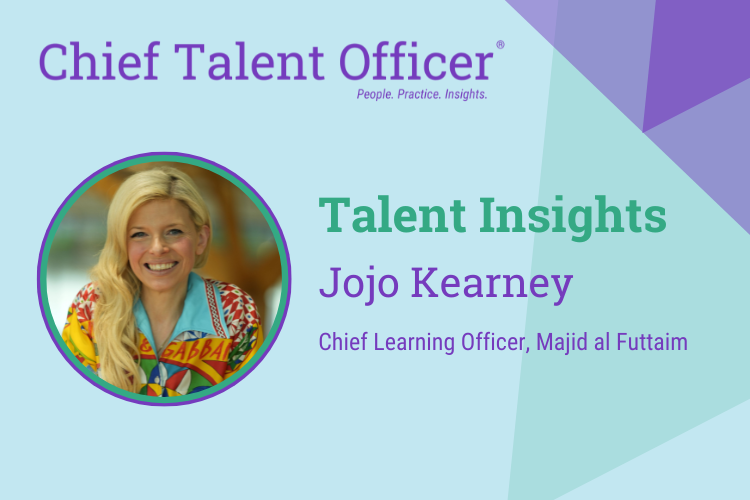Chief Talent Officer’s “Talent Insights” series is dedicated to sharing the insights and expertise of influential talent executives. In this Q&A series, we garner strategic insights, innovative approaches and challenges overcome from C-suite talent and HR executives, chief talent officers, chief people officers and more who are shaping the future of talent management.
What initially drew you to a career in talent management, and how have your experiences in the field evolved over the years?
My background in linguistics initially drew me to talent management, driven by a fascination with how language and communication shape human behavior. Understanding the nuances of language and dialogue has helped me assess and connect with diverse talent in very bespoke ways. Over the years, my experiences have evolved to focusing more broadly on organizational development. This journey has deepened my appreciation for the role of effective communication in fostering a collaborative workplace. My global experience – from Silicon Valley to Saudi Arabia to Singapore – continues to inform my approach to nurturing and aligning talent with human goals.
What core values and principles do you believe are essential for building a positive and inclusive company culture?
Epistemic humility, unbounded empathy and curious neophilia.
Can you share a significant challenge you’ve faced as a talent leader and how you successfully navigated through it?
A significant recurring challenge I faced as a talent leader was advocating for funding for talent development in a budget-constrained environment. I have tried to successfully navigate this by linking the investment in employee development directly to the company’s bottom line. I advocate presenting data showing how upskilling programs could enhance productivity, reduce turnover, and drive innovation, ultimately leading to higher revenue and lower costs. By demonstrating a clear return on investment and aligning the talent development initiatives with strategic business objectives, and using the “proof of concept” experimentation model, I secured the necessary funding and significantly improved both employee performance and organizational outcomes.
What strategies have you found most effective in attracting and retaining top talent in competitive industries?
Honest communication about challenges: Being transparent about the company’s challenges during the recruitment process. This honesty can attract top talent who are excited by the prospect of solving real problems and making a significant impact. It also sets realistic expectations and builds trust from the start.
Personalized career development plans: Offering highly personalized career development plans that are tailored to the individual aspirations and skills of each employee. Regularly updating these plans with input from the employees helps in retaining talent by showing a genuine investment in their professional growth and aligning their career paths with organizational goals.
Cultural business immersion programs: Creating cultural immersion programs where new hires spend time in different departments, learning about various aspects of the company. This fosters a deeper understanding of the organization’s mission and values, builds cross-functional relationships and enhances a sense of belonging and engagement from the outset.
How do you balance advocating for employees’ needs while aligning with your company’s business objectives?
I have a passion for language and communication and as such, I ensure open dialogues between employees and management to understand both perspectives. I implement feedback mechanisms to gather employees’ insights and concerns, which inform decision-making processes. Additionally, I align employee development programs with business goals, ensuring that meeting employees’ aspirations also drives organizational success. This approach fosters a collaborative environment where both employee satisfaction and business objectives are prioritized and harmonized.
What leadership skills do you prioritize and cultivate as a senior talent leader to inspire your team and drive talent initiatives?
The ability to dethrone yourself from the center of your world and place another person and community there.
What game-changing advice would you offer if you could go back in time and mentor your younger self?
There are no solutions, just trade offs. Coach yourself as you would your greatest talent. Use the obstacle; talent transformation is hard work so cognitively reappraise everything.
What do you feel is currently the single biggest challenge facing talent professionals and the industry as a whole?
The liquid, elevated expectations of the worker. We now expect from work what used to take a village. We expect it to be a source of income, a purveyor of purpose, a community of friends and much more. We have to reset and understand how to elevate talent in a world of unprecedented expectations.
We’re always looking to showcase innovative tools and technologies. Can you share one tech product or platform that has significantly improved your work processes and why you find it valuable?
Immersion neuro (wearables that measure the efficacy of talent programs).
Interested in being featured in our “Talent Insights” series? Please complete this FORM.
















